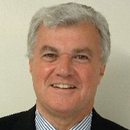Master of Science in Applied Sports Science Analytics
The Master of Science in Applied Sports Science Analytics is designed to provide students with the knowledge and skills to work successfully with athletes, coaches, sports medicine professionals, and athletic organizations. Created with input from sport science professionals working with professional athletic teams and sport science device manufacturers, the curriculum combines evidence-based research and practical application in sports from a health and human performance perspective. Students will learn methods used in performance data collection and analysis to improve health and human performance. Graduates enter the workforce as collaborative problem solvers who are capable of leading and managing within the field of data analytics for sports performance.
The M.S. in Applied Sports Science Analytics offers a dynamic collaboration between exercise science, statistics, and data science. The interdisciplinary nature of the degree provides students with the analytic skills to develop new applications and interfaces for large and complex sport and human performance datasets. When combined with foundational knowledge in exercise science, graduates possess the skill set to aid in the analysis and interpretation of the results to various levels of industry professionals from the athlete to the coaches and doctors, to the general manager and C-level executives.
What will I learn with an M.S in Applied Sports Science Analytics?
- Develop innovative training principles by combining key sports science and data analysis concepts
Information technology concepts for manipulating, storing, and analyzing big data
Design, implement and develop machine learning algorithms
Design and evaluate interactive visualization for data analysis
Apply statistical learning methods for data mining and inferential and predictive analytics for sports science
Enhance human performance through evidence-based interventions and applied research and practical skills
Examine the role that strength and conditioning techniques play in enhancing performance, preventing injuries, and accelerating rehabilitation
Understand the joint structure, joint function and biomechanical principles underlying the kinetics and kinematics of human motion
| Course Code | Course Title | Credits |
|---|---|---|
| DSCI701 | Ethical,Soc & Cult Implications of Data | 3 |
| DSCI704 | Data Analytics | 3 |
| DSCI705 | Visualization Design, Analysis, and Eval | 3 |
| EXSC701 | High Performance Science | 3 |
| EXSC702 | Sports Performance Analysis | 3 |
| EXSC705 | Advanced Strength and Conditioning | 3 |
| RSCI701 | Advance Kinesiology and Biomechanics | 3 |
| RSCI780 | Quantitative & Qualitative Research | 3 |
| RSCI781 | Capstone | 3 |
DSCI101X - Applied IT Fundamentals
This course focuses on the foundational IT concepts including identifying and explaining computer components, installing software, establishing network connectivity and preventing security risks. Students will also learn to apply basic computer maintenance and support principles as well as principles of software and database development.
DSCI102 - Introduction to Computer Science
This introduction to computer science, emphasizes problem solving and data analysis skills along with computer programming skills. Using Python, students learn design, implementation, testing, and analysis of algorithms and programs. And within the context of programming, they will learn to formulate problems, think creatively about solutions, and express those solutions clearly and accurately. Problems will be chosen from real-world examples such as graphics, image processing, cryptography, data analysis, astronomy, video games, and environmental simulation. Students get instruction from a world-class computer science professor, delivered remotely through video and interactive media and attend class for collaborative team projects to solve real-life problems. Prior programming experience is not a requirement for this course. Formerly: INTC102
DSCI103 - Fundamentals of Information Technology
his course provides students with the fundamental skills and concepts required to maintain, support, and work efficiently with personal computers. It will assist students in preparing for the Digital Transformation.The course is organized around the five important uses of technology in business – IT concepts, Infrastructure, Applications and Software Development, Database fundamentals, and Security and Cloud Computing.
DSCI105 - Data Warehouse and Business Intelligence
This course begins with the introduction of a data warehouse. Students will learn the concepts, tools and application of data warehouse for business reporting and online analytical processing. Students will also learn how to create visualizations and dashboards, and descriptive analytics. The material builds from the concepts learned in basic statistics courses. Core tools used in this course include Microsoft Excel, and SAS Visual Analytics. Excel will be used to teach the basics of visualizations – like bar charts, line charts etc. in order to ramp-up the students’ expertise into SAS Visual Analytics. SAS Visual Analytics will be used as a tool to introduce students to data warehousing, and building basic visualizations. Students will also be exposed to Facts and Dimensions.
DSCI150 - Internet History, Technology, & Security
The impact of technology and networks on our lives, culture, and society continues to increase. The very fact that you can take this course from anywhere in the world requires a technological infrastructure that was designed, engineered, and built over the past sixty years. To function in an information-centric world, we need to understand the workings of network technology. This course will open up the Internet and show you how it was created, who created it, and how it works. Along the way we will meet many of the innovators who developed the Internet and Web technologies that we use today. After this course you will not take the Internet and Web for granted. You will be better informed about important technological issues currently facing society. You will realize that the Internet and Web are spaces for innovation and you will get a better understanding of how you might fit into that innovation. If you get excited about the material in this course, it is a great lead-in to taking a course in Web design, Web development, programming, or even network administration. At a minimum, you will be a much wiser network citizen
DSCI201 - Analytics using SAS Visual Analytics
his course focuses on building and enhancing skills from the Data Warehousing and Business Intelligence course. Students will expand their concepts of Business Intelligence, Visualizations, Dashboards, and Descriptive Analytics. The core tool used in this course is SAS Visual Analytics. Students will create visualizations, dashboards, and export reports to be able to present to the class.Prerequisite: DSCI105
DSCI202 - Business Analytics
This course provides the conceptual and technical foundations of various aspects of Data Analytics. The purpose is to prepare students with foundation skills in Big Data, a skill widely needed and valued across the business world. The course will expose students to the data analytics practices executed in the business world and explores key areas of the analytical process, how data is created, stored, accessed, and how organizations work with data and creates the environment in which analytics can flourish. This course will provide students with a strong foundation in all the areas that support analytics and will help them to better position themselves for success within any organization.This course provides the conceptual and technical foundations of various aspects of Big Data Analytics, including cloud computing, NoSQL Databases, predictive and prescriptive analytics.Prerequisite: MATH208 or MATH209
DSCI203 - OS + Algorithms
An introduction to the theory and structure of modern operating systems, including hardware abstraction, process management, memory management, system performance, and security. Specific attention to multi-threaded processing, semaphores, locking and inter-process communication.Prerequisite: DSCI102 & DSCI103(Formerly INTC102/INTC103)
DSCI204 - How to Think Like a Data Scientist
This course introduces students to the importance of gathering, cleaning, normalizing, visualizing and analyzing data to drive informed decision-making, no matter the field of study. Students will learn to use a combination of tools and techniques, including spreadsheets, SQL and Python to work on real-world data sets using a combination of procedural and basic machine learning algorithms. They will also learn to ask good, exploratory questions and develop metrics to come up with a well thought-out analysis. Presenting and discussing an analysis of data sets chosen by the students will be an important part of the course.Prerequisite: DSCI102 & DSIC103 (Formerly INTC102/103)
DSCI205 - Data Communication & Networks
This course introduces students to the fundamental concepts of computer networks and data communication, including a survey of major protocols, standards, and architectures. Students will use the concepts and terminology of data communications in describing how software applications and network services communicate with one another. Students will read and analyze network traces to monitor communications, diagnose issues, and evaluate protocols.Prerequisite: DSCI102 & DSCI103(formerly INTC102/103)
DSCI207 - Cryptology
A course that covers fundamental mathematical concepts from modern algebra, number theory, and other areas of mathematics. Provides a foundation for the understanding of classical encryption systems and modern encryption methods. Emphasis on the mathematical underpinnings germane to cryptology. Prepares students for advanced study of modern cryptography. Experience implementing encryption, decryption and crypt-analytic methods on a variety of systems.Prerequisite: DSCI102, MATH208 & MATH209
DSCI301 - Big Data Analytics
This course provides the conceptual and technical foundations of various aspects of Big Data Analytics. The purpose is to help students acquire foundation skills in Big Data – which can be used to further their specialization in a niche within Big Data. Upon completion of the course students should be able to understand: What Big Data, Cloud Computing and NoSQL Databases are; Various components and architecture of Big Data Analytics; Different types of Analytics including Text, Descriptive, Predictive and Prescriptive; and how Big Data Analytics is used in different contexts. Students should also be able to use Analytics and Dashboards to present actionable Insights. This course will use SAS Visual Analytics as one of the tools for illustrating the volume of Big Data, and how it can be used to harness actionable insights. Students will use datasets to create visualizations and actionable insights.Prerequisite: DSCI102, DSCI105 & DSCI201
DSCI302 - IT Security & Risk Management
This course focuses on the concepts, terminology and practice of network security. Topics include the fundamental goals of network security and practical applications of wired and wireless network security techniques such as applications of cryptology in network protocols, authentication, access control, network security devices such as firewalls and intrusion detection and prevention systems, incident response, log analysis, honeypots and honeynets.
DSCI303 - Machine Learning
Machine learning is a type of artificial intelligence (AI) that provides computers with the ability to learn without being explicitly programmed. The course covers issues both theoretical and practical. Students will be presented with algorithms and approaches in such a way that can ground them in larger systems as they learn about a variety of topics, including statistical supervised and unsupervised learning methods, randomized search algorithms and reinforcement learning.Prerequisites: DSCI102, DSCI103 & DSCI204
DSCI304 - Marketing Analytics
The course provides the conceptual and technical foundations of various marketing metrics and research methods. The purpose of the course is to allow students to acquire practical marketing skills in Data Analysis via hands-on experience.Prerequisites: BUSS220 & DSCI202
DSCI305 - Information Assurance and Management
This course focuses on management of the information assurance process. Topics include human factors in reducing security breaches, security incident detection and response, remediation, management's role in information assurance, and other considerations in framing and implementing information assurance policies.Prerequisites: DSCI102 & DSCI103
DSCI306 - Advanced Python Programming
This course provides students with the opportunity to write useful Python applications in the ETL, web, and data analysis domains and knowledge of industry-standard tools and techniques for working within a development team. The course goes further into Python’s powerful advanced features, such as user-defined classes, object-oriented design, decorators, and generators. Students will learn to employ the most widely used algorithms and libraries to solve common problems in the field and gain a working familiarity with statistical analysis and visualization using Pandas, NumPy, and Matplotlib. . Query and parse HTML, XML, and JSON are used.. Students will learn to apply industry-standard tools and techniques for working within a development team, such as Git for versioning and code review. The course concludes with a discussion of common interview questions and pathways for gaining experience and eventually securing a position in the field.Prerequisites: DSCI102, DSCI202 & DSCI204
DSCI307 - Analytics Elec w/SAS
Analytics Elec w/SAS
DSCI308 - Predictive & Prescriptive Analytics
In this course, students will be introduced to the fundamentals of the art and science of Predictive Analytics as it relates to improving business performance. This hands-on course covers the key concepts necessary to extract stored data elements, understand what they mean from a business point of view, transform their formats, and derive new relationships among them to produce a dataset suitable for analytical modeling. At the end of the course, participants will be tasked with using these skills to produce a fully processed data set compatible for building powerful predictive models that can be deployed to increase profitability.Prerequisites: DSCI303
DSCI310 - Cyberlaw & Cybercrime
This course includes extensive discussion of the legal constraints, both civil and criminal, that underlie acceptable behavior using computers and networks today. Prerequisites: BUSS205 & DSCI103
DSCI402 - Analytics with R
This course introduces students to R, a widely used statistical programming language. Students will learn to manipulate data objects, produce graphics, analyze data using common statistical methods, and generate reproducible statistical reports. They will also gain experience in applying these acquired skills in various public policy areas.Prerequisites: DSCI102, DSCI202 & DSCI204
DSCI403 - Advanced Predictive Analytics
Acquire in-depth knowledge on advanced predictive analytics topics and apply those to real-world situations. These scenarios illustrate the significant role that predictive analytics plays. You pay particular attention to developing your ability to effectively interpret the outcomes of statistical models. You also focus on time series data analysis and survival analysis using the SAS system. Prerequisite: DSCI308
DSCI405 - Computer Forensics
This course provides student with the opportunity to perform basic forensic techniques and use appropriate media analysis software. Basics of security, structure and protocols of network operating systems and devices are covered as students will work to gather evidence in a networked environment and to image and restore evidence properly without destroying value. Students will practice gaining evidence from a computer system while maintaining its integrity and a solid chain of custody. Within the laboratory, students will gain hands-on experience in the use of current investigative tools. Prerequisites: DSCI205 & DSCI310
DSCI409 - Project & Program Management
This course allows students to develop the competencies and skills for planning and controlling projects and understanding interpersonal issues that drive successful project outcomes. Focusing on the introduction of new products and processes, students will examine the project management life cycle, define project parameters, matrix management challenges, effective project management tools and techniques, and take on the role of a project manager. This course is designed to guide students through the fundamental project management tools and behavioral skills necessary to successfully launch, lead, and realize benefits from projects in both for-profit and non-profit organizations.Prerequisite: Senior Standing & internship
DSCI499 - Internship Data Science
Internship Data Science
EXSC101 - Essentials of Musculoskeletal Anatomy
This course provides students with foundational concepts associated with the healthcare and fitness industry. Through connected learning projects, emphasis is placed on understanding musculoskeletal anatomy and medical nomenclature
EXSC103 - Skills & Techniques for the Exercise Sci
The purpose of this course is to provide foundational skills in measurement techniques of health and physical activity that are necessary and relevant for a professional in the field of exercise science, fitness management and related disciplines. Students will learn how to screen exercise participants for health risks, to assess basic anthropometrics, body composition, cardiovascular fitness, muscular fitness, and flexibility in apparently healthy individuals, across the lifespan, using a variety of techniques and technologies. In addition, principles and techniques for recognition and management of non-life-threatening and life-threatening emergencies will be covered. Students will be exposed to evidence-based foundations within the discipline, as well as career options and the role of the exercise, health, and fitness professional in the health, wellness and sport disciplines. At the completion of the course, students will be eligible for Professional Rescuer CPR/AED certification.
EXSC104 - Principles & Problems of Coaching
This course provides students with an introduction to the profession of coaching. Students develop a base of knowledge through the study of principles and concepts from the areas of coaching philosophy, sport psychology, sport pedagogy, sport physiology, and sports management. Upon successful completion of the course, students have a thorough understanding and appreciation of possible solutions for those problems that are most frequently encountered in coaching, as well as the ability to apply principles of coaching to individual athletes and/or a team.
EXSC106 - Functional Anatomy & Resistance Trainig
This course applies principles of anatomy to the study of human motion and resistance training. The course will explore human movement through applied anatomy and biomechanics, as well as through the analysis of exercises and sport movements. Students will be able to identify, describe, execute, and progress common resistance training exercises for the upper extremity, lower extremity, and trunk that target specific musculature. Students will utilize their anatomical knowledge base to evaluate exercise technique and form.
EXSC107 - Healthy Lifestyles and Human Behavior
This course focuses on evaluating and implementing healthy lifestyles and human behavior for longevity of lifespan from adolescence through adult development. Focus will be placed upon cultivating a holistic approach to health and wellness that is rooted within strategies for implementing healthy lifestyle changes, as well as "living through prevention": a description relating to methods of preventing long term disease and disability.
EXSC108 - Group Exercise
This course will introduce students to group exercise instruction methods. Students will gain knowledge of and skill in planning exercise sessions for groups of exercisers using a variety of formats and instructional techniques. Communication, instruction, safety, motivation, organization, music selection, and choreography with be discussed and practiced. In addition, the application of common anatomy, physiology, and behavior modification principles will be used in designing and progressing group exercise sessions. A variety of fitness activities will be explored including sports conditioning, circuit training, boot camp, step aerobics, kickboxing, strength training, yoga and indoor cycling. This course will also prepare students to sit for national certification exams.
EXSC202 - Applied Coaching Techniques
The course is designed to help aspiring coaches teach the skills athletes need in order to perform effectively in team and individualized sports. Students will learn how to address the various issues faced by athletic coaches by thoroughly examining such concepts as individual differences exhibited by athletes; technical, tactical, and mental skills athletes need to learn; content and structure of skill practice; the art of providing feedback; and the preparation of athletes for competition. This exploration prepares coaches to work with athletes competently and confidently in most coaching settings.
EXSC209 - Performance Nutrition
This course studies the effects, benefits, and sources of major nutrients. It includes an overview of nutritional issues involved in disease processes and nutritional needs for an active population. Special focus on patient assessment and development of dietary plans based on energy expenditure. Prerequisites: BIO 205, BIO 206.
EXSC211 - Principles of Personal Training
This course prepares students for national certification exams as personal trainers. Each class addresses pertinent topics of the health fitness professional. These topics include health screening and assessment and comprehensive program design for multiple populations. The course empowers students with the skills necessary to become qualified fitness professionals.
EXSC213 - Coaching Practicum
This course provides students the opportunity to apply the principles and practices of coaching in a junior high, high school, or collegiate environment. Students participate actively in practical coaching experiences under the guidance and supervision of a qualified coach. Prerequisite: EXSC 104
EXSC222 - Kinesiology
This course examines the anatomical and mechanical concepts required for critical assessment, description, and analysis of human motion. The laboratory component includes analysis of human motion. Prerequisites: BIO205, BIO206, PHYS111. Corequisite EXSC222L
EXSC302 - Exercise Physiology
This course explores the acute and chronic effects of exercise on the structure and function of the body with an emphasis on the metabolic cardiovascular, pulmonary, and neuromuscular systems. Also discussed are the effects of environmental factors and ergogenic aids on exercise performance. The objective of this course is for the student to gain an understanding and working knowledge of how the body responds to exercise so that they may apply this knowledge to their chosen field. The practical applications of the major principles are demonstrated in a laboratory setting (EXSC 302L). Students are advised that the capability to exercise moderately and maximally may be required and documentation if a medical examination indicating cardiopulmonary status and exercise capacity may be requested by the instructor. Prerequisite BIO 205/BIO 206. Corequisite EXSC 302L
EXSC304 - Exercise Testing & Prescription
This course is designed to provide students with the knowledge and skills to engage in the application of physiological principles and development of practical skills for fitness evaluation and exercise prescription. Course content will emphasis: pre-test screening and assessment and prescription fundamentals for cardiovascular fitness, muscular fitness, body composition, and flexibility. Prerequisite EXSC302. Co-requisite EXSC304
EXSC305 - Strength Training & Conditioning
Lecture and practical sessions include principles of weight training and conditioning, orientation to different modalities, including free weights, weight machines (i.e., Nautilus), and circuit training and development of individual and group exercise programs. Students may be required to obtain medical clearance prior to participation. Pre-requisite BIO205, BIO206. Co-requisite EXSC305L
EXSC306 - Applied Ethics in Health Care
Develop a moral and ethical decision making framework as related to the healthcare field as individuals (clinician) and groups (healthcare team) through the application ethical principles and concepts.
EXSC307 - Func Assessment & Corrective Exc Pres
This course is designed to provide students advanced concepts in strength and conditioning. Emphasis is placed on the application of principles and theories covered in the Strength and Conditioning class. Students focus on the development of sports specific programs for the purpose of improving athletic performance. Prerequisite: EXSC305.
EXSC340 - Research Concepts
This course covers research concepts in the healthcare and fitness industry including the logic of experimental and correlational designs, issues of control, sampling, measurement of variables, ethical issues in research, use of online professional search procedures, and writing in APA style. Students engage in various aspects of the research process culminating in a research paper on a discipline specific topic. Prerequisite: MATH208.
EXSC401 - Professional Development Seminar
This course will prepare students to sit for the certification in the field of exercise science, with emphasis on the NSCA Certified Strength and Conditioning Specialist, and the ACSM, Certified Exercise Physiologist certifications. Students will assess their current level of knowledge, and identify and actively improve upon areas of weakness. Students will develop a personal study plan, which will involve review sessions and practice tests both in and out of the classroom, Students will develop a post-graduation plan and prepare the necessary materials to carry out their individual plan, including GRE preparations, resume, cover letter, personal statement writing, as well as mock interview sessions. Prerequisite: Senior level standing
EXSC403 - Exercise for Special Populations
Exercise for Special Populations explores the role of exercise in health and disease and how the normal physiological response to exercise changes in the presence of disease. This course will specifically focus on pathophysiology, treatments and medications, acute and chronic effects of exercise, and exercise testing and prescription guidelines for individuals with cardiovascular, pulmonary, metabolic, neurological and immunological diseases and disorders. This course will allow students to understand the effect of exercise, chronic diseases and conditions, and allow them to apply this knowledge in the field. Prerequisite: EXSC302.
EXSC405 - Org & Admin of Health & Sports Programs
This course presents the principles of managing physical education, intramural and athletic programs, commercial fitness and strength and conditioning/sports performance businesses, issues, scheduling, staff, financial planning and related duties of faculty mangers. Likewise, it is important to note that this is a writing intensive course. Prerequisites: Junior Standing
EXSC406 - Advanced Topics in Exercise Physiology
This course explores and evaluates current concepts in the understanding of physiological function and effects of exercise. Particular emphasis is placed on the understanding of current scientific literature, research methods, and clinical implementation of advanced exercise science topics. Students will take an interactive approach to critique and review research literature in a variety of topics in the field of exercise science. Students will also develop literature reviews and present their findings in areas of their interests as well as in assigned topics. Prerequisite: EXSC302
EXSC410 - Exercise Science Field Experience I
This is an off-campus experience in a hospital, clinic, corporate, university or commercial setting, as appropriate. Concepts, theories, and practices learned in the classroom are applied in a supervised setting. Students must successfully complete at least 150 hours of field experience in addition to written assignments. Prerequisites: EXSC302, EXSC305, current CPR/AED certification
EXSC420 - Exercise Science Field Experience II
This is an off-campus experience in a hospital, clinic, corporate, university or commercial setting, as appropriate. Concepts, theories, and practices learned in the classroom are applied in a supervised setting. Students must successfully complete at least 300 hours of field experience in addition to written assignments. Prerequisites: EXSC302, EXSC305, current CPR/AED certification
EXSC425 - Exercise Science Field Experience III
This is an off-campus experience in a hospital, clinic, corporate, university or commercial setting, as appropriate. Concepts, theories, and practices learned in the classroom are applied in a supervised setting. Students must successfully complete at least 150 hours of field experience in addition to written assignments. Prerequisites: EXSC302, EXSC305, current CPR/AED certification
EXSC430 - Exercise Science Capstone
The capstone course synthesizes theories and practices of exercise physiology into one culminating and progressive exercise program for a client. Students serve as subjects, technicians, and administrators. The primary goal is to better prepare students to engage in research at the graduate level and to create an opportunity for students to apply various concepts and theories attained throughout the curriculum. The content of this course focuses on opportunities for exercise program design and undergraduate research, with three course design option; development of original case study research, with focus on adhering to written and oral presentation standards within the field; development of an original research question, with focus on methodology, data collection and statistical analysis; or development of an understanding of the research process, with focus on review of the literature, defining the research question, and study methodology. Prerequisite: EXSC 340
MSAT714 - Behavioral and Mental Health
This course is designed to provide an understanding of the theory and application of psychology of sport, injury, and rehabilitation. Topics covered include emotion, motivation, mental skills training and use, psychological antecedents of injury, psychology of injury and rehabilitation, career transition and termination, disabilities, rehabilitation/exercise adherence, eating disorders, alcohol and drug/substance abuse, gender and cultural diversity, and research methods related to the psychology of sport, injury, and rehabilitation.
RSCI701 - Advance Kinesiology and Biomechanics
The course involves a study of joint structure, joint function, and the biomechanical principles underlying the kinetics and kinematics of human motion, including normal gait and human movement. Emphasis is placed on the interaction between biomechanical and physiological factors in musculoskeletal and neuromuscular function, and the application of kinesiological principles to clinical rehabilitation practice.
RSCI702 - Pathokinesiology
The student will be introduced to a systematic evaluation approach based on the pathokinesiological model. The pathokinesiological model will examine human movement systems and it significance to regions of the human body. These regions will be recognized as potential sites for integrated pre-habilitation and rehabilitation exercise programs. Pre-requisite RSCI701
RSCI703 - Musculoskeletal Functional Assessment
The emphasis of this course is on the assessment of functional orthopedic conditions and musculoskeletal screening. The course emphasizes the application of systems analysis principles to clinical situations. The course goal is to improvethe clinician's ability to evaluate the patient's complaint as related to movement andidentify those patients who require additional orthopedic evaluation & referral whileassessing patient complaints in a logical deductive manner. Screening and assessment tools will be demonstrated as part of the process. In addition, the student is able to assess clinical scenarios as illustrated by relevant case studies.
RSCI704 - Concepts & Application of Manual Therapy
This hands-on course provides the theory and clinical application of current best practices in manual therapy techniques utilized in the treatment of orthopedic conditions that limit functional movement. The skills acquired in this course intend to produce any or all of the following effects: improve tissue extensibility; increase range of motion; mobilize soft tissues and joints; improve muscle function; modulate pain; and reduce soft tissue inflammation or restrictions in movement. A certification in a manual therapy technique will be acquired at the completion of the course. RSCI 704 is an on campus course scheduled during the required summer residency.
RSCI705 - Evidence Based Rehabilitation
The purpose of this course is to increase student understanding of various rehabilitation issues facing America and the world today. This course focuses students toward the ever-changing contemporary issues that impact direct and indirect client care.
RSCI706 - Rehabilitation Program Design for Human
This course will introduce pre-habilitation and rehabilitation exercise strategies based on limit function and dysfunction. The student will receive detailed insight into the design of corrective exercise programs. The systematic approach of an integrated corrective exercise design uniquely blends the variables of available flexibility, isolated and integrated strengthening, and exercise design to provide the student with the necessary foundation in designing and developing safe prevention and corrective exercise programs. Pre-requisite RSCI703.
RSCI708 - Applied Nutrition Across the Lifespan
This course provides an in-depth exploration of contemporary issues nutrition for active individuals across the life span. Course topics will include: nutrition timing, caloric expenditure, performance enhancement dietary supplements, dietary lipids and heart disease, dietary fiber and health, and influence of life +style factors on nutrition. Controversies in nutrition, ergogenic aids and cultural aspects of food are also discussed. In addition, the course covers energy and nutrient needs for physical and athletic activities. Common myths and fallacies concerning diet and athletic performance as well as appropriate dietary approaches for specific activities and active people will be addressed.
RSCI709 - Concepts & Application of Manual Therapy
This hands-on course provides the theory and clinical application of current best practices in manual therapy techniques utilized in the treatment of orthopedic conditions that limit functional movement. The skills acquired in this course intend to produce any or all of the following effects: improve tissue extensibility; increase range of motion; mobilize soft tissues and joints; improve muscle function; modulate pain; and reduce soft tissue inflammation or restrictions in movement. A certification in a manual therapy technique will be acquired at the completion of the course. RSCI 704 is an on campus course scheduled during the required summer residency.
RSCI713 - Pharmacology
This course serves as a foundation to general pharmacology, focusing on categories of medications and their interaction with body systems. At the completion of this course, students will be able to integrate pathophysiological principles of pharmacology and patient assessment finds to formulate an impression and implement a pharmacologic management plan.
RSCI715 - Advanced Pathophysiology
This course involves an in-depth evaluation of disease and injury processes across the lifespan and their relevance to therapeutic rehabilitation are presented. Attention is given to all major physiological systems and their significance in the rehabilitation sciences.
RSCI716 - Ethical Issues in Healthcare Professions
This course is a study of the application of ethical principles, which includes the legal factors and professional behavior, which impact patient management and the rights of the consumer in the provision of medical and rehabilitation services. Ethical issues explored include: human value development, decision making, basic principles of health care, the nature of rights, confidentiality and management of health care information, professional gate keeping as a function of role fidelity, autonomy and paternalism, and justice and the allocation of scarce resources.
RSCI717 - Healthcare Leadership & Decision Making
This course is intended to prepare students for the leadership decisions and actions that are inherent in performance enhancement management and practice within healthcare and wellness settings. Principles and applications of leadership will be explored, including persuasiveness, leading and directing teams, leading within organizations, and leadership opportunities in shaping policy in healthcare and wellness settings. Techniques for managing change and empowering others are included in this course. Topics related to effective leadership are issues of power, motivation, delegation, team building, persuasion and negotiation, and total quality improvement are included in this course.
RSCI780 - Quantitative & Qualitative Research
This course provides an overview of foundations of research design and the uses and interpretation of results. Content includes: reviewing the literature, developing research problems/questions; hypothesis testing, experimental, quasi-experimental and other research designs; and evaluating research studies as they relate to evidence-based practice in the health professions. The intended outcome is to familiarize students with the evidence-based guidelines associated to clinical outcomes and evidence-based practice.
RSCI781 - Capstone
Through the completion of a research project, on a topic within the field, this course serves as an essential outcome component to augment the professional development and new learning that occurs in didactic course work and demonstrates the ability of the graduate to make significant contributions to their professions. Pre-requisite: must be taken in final semester of program. Prerequisite: RSCI780

Cristina Haverty
Associate Vice President of Workforce Development and Global Engagement/ Professor, Athletic Training
Office: Alexander STC
Email: chaverty@lasell.edu

Lori Rosenthal
Assistant Provost; Professor of Psychology
Office: Plummer
Email: lrosenthal@lasell.edu
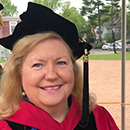
Janice Barrett
Professor of Communication; Chair, Graduate Communication Program
Office: Donahue 108
Email: jbarrett@lasell.edu
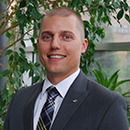
Keith Belmore
Associate Professor of Athletic Training and Graduate Chair of Athletic Training
Office: Alexander STC 104N
Email: KBelmore@lasell.edu

Linda Bucci
Professor & Program Chair of Justice Studies, Graduate Chair of Criminal Justice
Office: Plummer
Email: lbucci@lasell.edu

Sarah Giasullo
Assistant Professor of Athletic Training; Graduate Chair of Health Sciences
Office: Alexander STC 104T
Email: SGiasullo@lasell.edu

Janet Huetteman
Graduate Chair of Management and Marketing; Associate Professor of Marketing
Office: 23 Maple Street, Office #5
Email: JHuetteman@lasell.edu

Young-Tae Kim
Associate Professor of Sport Management; Graduate Interim Chair of Sport Management
Office: Alexandar STC
Email: ykim@lasell.edu

Ron Laham
Assistant Professor of Athletic Training/ Exercise Science
Office: Alexander STC
Email: RLaham@lasell.edu

Luis Lopez-Preciado
Associate Professor of Communication
Office: Donahue
Email: LLopez-Preciado@lasell.edu

Meryl Perlson
Chair of Communication; Professor of Communication
Office: Donahue 107
Email: mperlson@lasell.edu
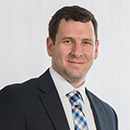
Matthew Reilly
Chair of Business and Interim Chair of Sport Management; Assistant Professor of Business
Office: DeArment
Email: MReilly@lasell.edu

Claudia Rinaldi
The Joan Weiler Arnow ’49 Professor/Professor of Education, Chair of Education
Office: Brennan Library
Email: CRinaldi@lasell.edu

Daniel Sargeant
Associate Professor of Sport Management
Office: Alexander STC
Email: DSargeant@lasell.edu
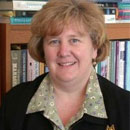
Nancy Waldron
Assistant Provost; Professor of Entrepreneurship and Management
Office: DeArment
Email: nwaldron@lasell.edu

Brian Wardyga
Professor of Communication; General Manager, 109.2FM WLAS & LCTV
Office: Brennan Library, G04F
Email: bwardyga@lasell.edu
- Academic Policies 20-21
- Admission to Graduate Studies
- Course Descriptions
- Graduate Financial Information 20-21
-
Programs of Study
- Bachelor Degree Completion Program
- Master of Science in Human Resources
- Master of Education
- Master of Science in Marketing
- Master of Science in Communication
- Master of Science in Criminal Justice 20-21
- Master of Science in Management 20-21
- Master of Science in Nutrition for Human Performance
- Master of Science in Athletic Training
- Master of Science in Project Management
- Master of Science in Rehabilitation Science
- Master of Science in Sport Management
- Graduate Certificates
- MBA
- Master of Science in Applied Sports Science Analytics
- Master of Science in Integrated Marketing Communication



